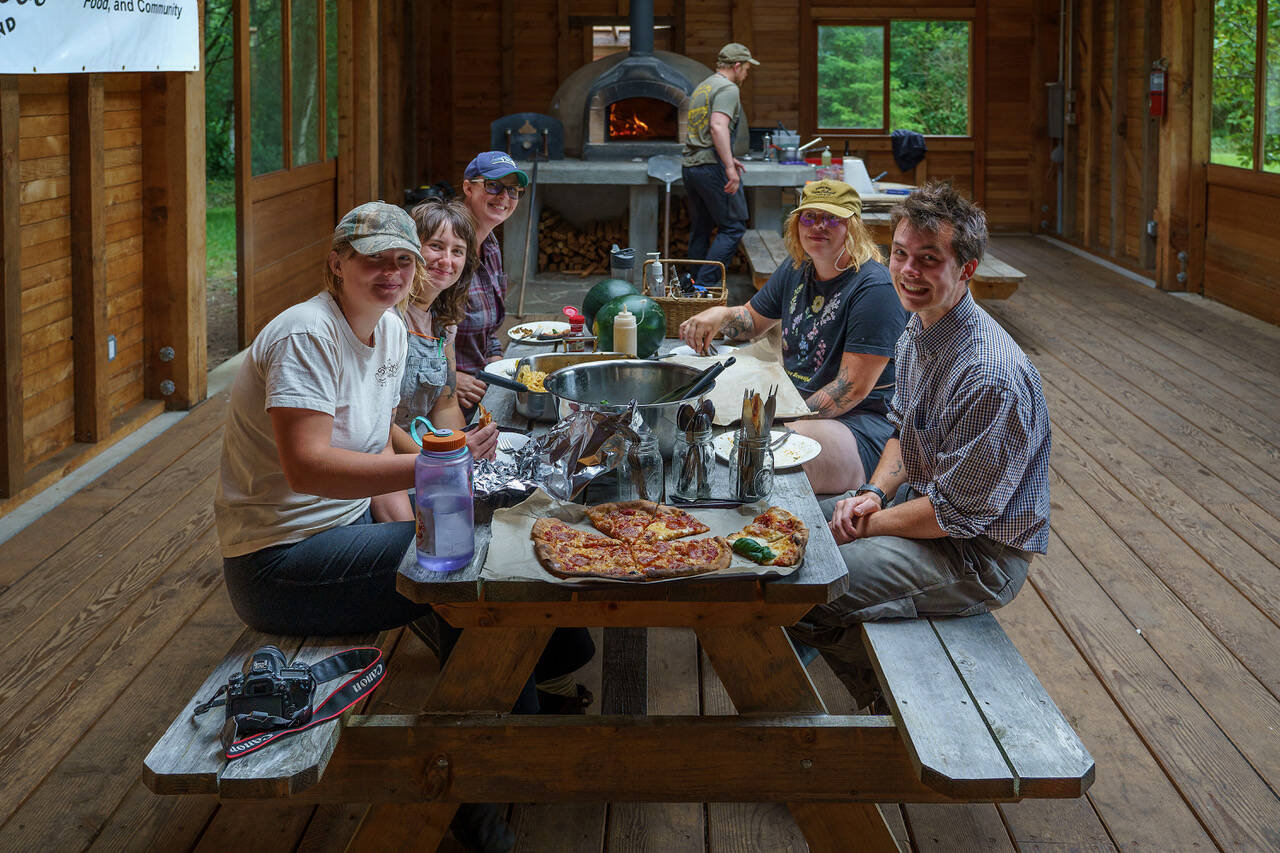The agri-curious can now have a down-to-earth experience by spending a weekend at the Organic Farm School.
A new program of the Clinton-based nonprofit organization allows friends and family, visitors and locals alike to stay in a charming four-bedroom cabin on the farm campus for three days. While there, they’ll meet with farmers, tour the fields and taste produce straight from the ground.
The home’s spacious kitchen boasts two ovens, multiple sinks, a walk-in pantry and an island bigger than a king-sized bed.
“If you’re trying to reconnect people to what it takes to get food from soil to plate, what better way to do it than by cooking together after you’ve just harvested it out of the field and talked to a young farmer that’s been part of growing it?” Executive Director Judy Feldman said.
For $2,650, the cabin – named the Feed & Seed – can be yours for the weekend. The price includes lodging, produce and activities and is ideal for groups of six to 10. Lodgers can pay an additional fee of $250 if they are interested in using the wood-fired pizza oven located in the farm’s picnic shelter. They can also choose to hire chefs or nutritional therapists from an available list.
There are seven remaining farm stays in 2024, which include June 21-23, Aug. 2-4, Aug. 16-18, Oct. 4-6, Oct. 18-20, Nov. 1-3 and Nov. 15-18. In a few weeks, Feldman said, the Organic Farm School plans to open bookings for 2025 dates.
Eagle-eyed Whidbey Islanders may notice that some of those dates fall within autumn, which can be a notoriously windy season. Feldman acknowledged that it’s important to be honest about the uncertainties.
“It’s also part of the island experience,” she said. “If the power goes out, what do you do? How do you manage it? Where are the candles? Where are the flashlights?”
Lodgers will also get to witness the circle of life in the fall with the harvesting of pigs and poultry, which allows a more intimate participation in how livestock is part of a farm’s operations.
And as Organic Farm School staff pointed out, it’s an opportunity to inspire young people who may be considering a career in farming. According to the 2022 Census of Agriculture, the average age of a U.S. farmer is 58.
“And you can talk to somebody who’s choosing that life at a time when it’s not easiest,” said Kirsten Murray, outreach coordinator for the Organic Farm School.
Every year, a new crop of students – some young, some old, some in-between – attend the school.
The idea is that the farm stays will bring awareness to the little school, which many on the mainland don’t know exists.
“You just get a little taste, and you can be a farmer for a weekend,” said Adam Skaardal, hospitality and business manager.
Lodgers will get to see the fullness of the farm as they attend a community potluck and tours. Kids are welcome, too.
“We want to make sure that it always stays focused on the purpose,” Feldman said. “This isn’t intended as a party house, it isn’t intended for people who just need extra room on the Fourth of July. This is for people who seriously want to get curious about food and farming, and about Whidbey.”



